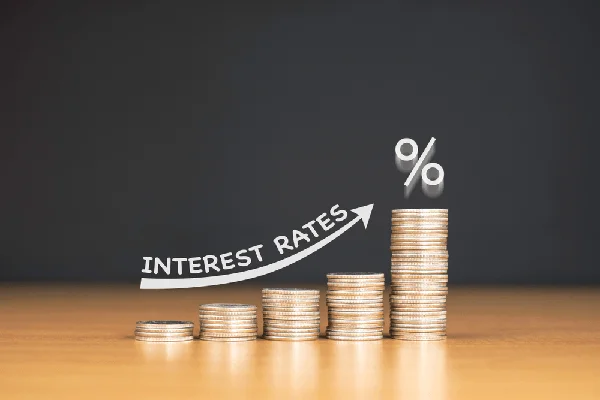Bank of England Rises Base Rate to 0.25%

The Bank of England increased the base rate from a record low of 0.1% to 0.25% on Wednesday of this week. The decision was made in an effort to get the ever-increasing inflation rate under control. With inflation rising to a whopping 5.1%, significantly higher than the targeted 2% and the highest seen in the last ten years, the B of E is under tremendous pressure to find a way to bring the CPI inflation rate down.
Against all expectations, the base rate was kept at 0.1% last month. The Bank of England’s policymaker, Michael Saunders, stated that he had voted for the rise to 2.5% and stated to expect further increases in the short term.
The last time the base rate was increased was in August 2018 from 0.5% to 0.75%, where it remained until March 2020. It was reduced to 0.25 and further lowered to 0.1%.
The Monetary Policy Committee, in this month’s meeting, took a vote to increase the base rate, with eight to one members voting to increase the base rate to 0.25% and just one person, Silvana, voting to keep the rate at 0.10%.
The MPC stated that there was a high expectation that the inflation rate would stay around the 5% mark for the winter months and would rise to as much as 6% by April 2022. The CPI (consumer price inflation) is predicted to fall in the second half of the year.
The MPC suggested that even though the Omicron variant is likely to impact the economy in the short term, the increase is ‘warranted’ because of the uncertainty surrounding the virus.
Director of Legal and General Mortgage Club, Kevin Roberts, said: “Whilst last month a rise was expected, the consensus appeared to be for the status quo this month; therefore, this decision once again comes as a surprise”.
“It would appear the need to tackle rising inflation outweighs the many other factors currently at play. However, it’s important to put any rise in context: this is an increase from a historic low and will primarily help to give the central bank the option to reduce rates again, should it need to inject more life into the economy next year.”
The personal finance specialist at Nutmeg, Annabelle Williams, added: “The Bank of England’s economists previously predicted inflation could reach a worrying five per cent by spring next year, but on Wednesday data showed that the rate of price rises had already breached that level in November.
“These rapid price hikes have come at a time when the tax burden is increasing and the worsening COVID-19 situation makes the outlook for businesses and employment uncertain.
“It’s a toxic mix, and the Bank of England has been forced into taking action by raising interest rates before the economy takes a turn for the worse.”
Kevin Roberts went on to say that the increase will inevitably have an effect on mortgage prices, but not to be too worried, as lender competition will help to keep the price increases to a minimum.
He added, “People tend to fear higher interest rates as it makes borrowing more expensive. But we ought to bear in mind that this is a small increase and rates are not going back to anything like ‘normal’ levels any time soon.”
